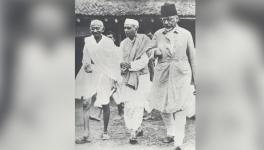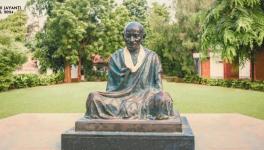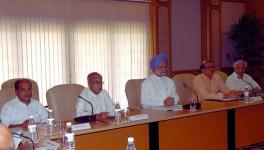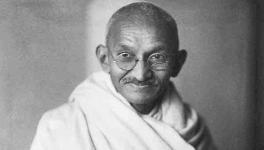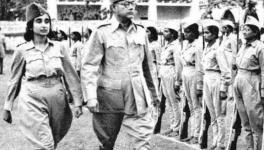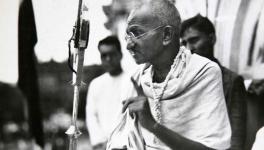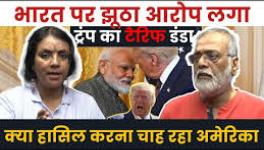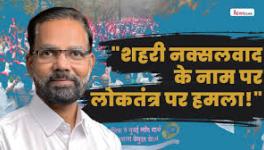Marx, Gandhi and Modernity – Essays Presented to Javeed Alam
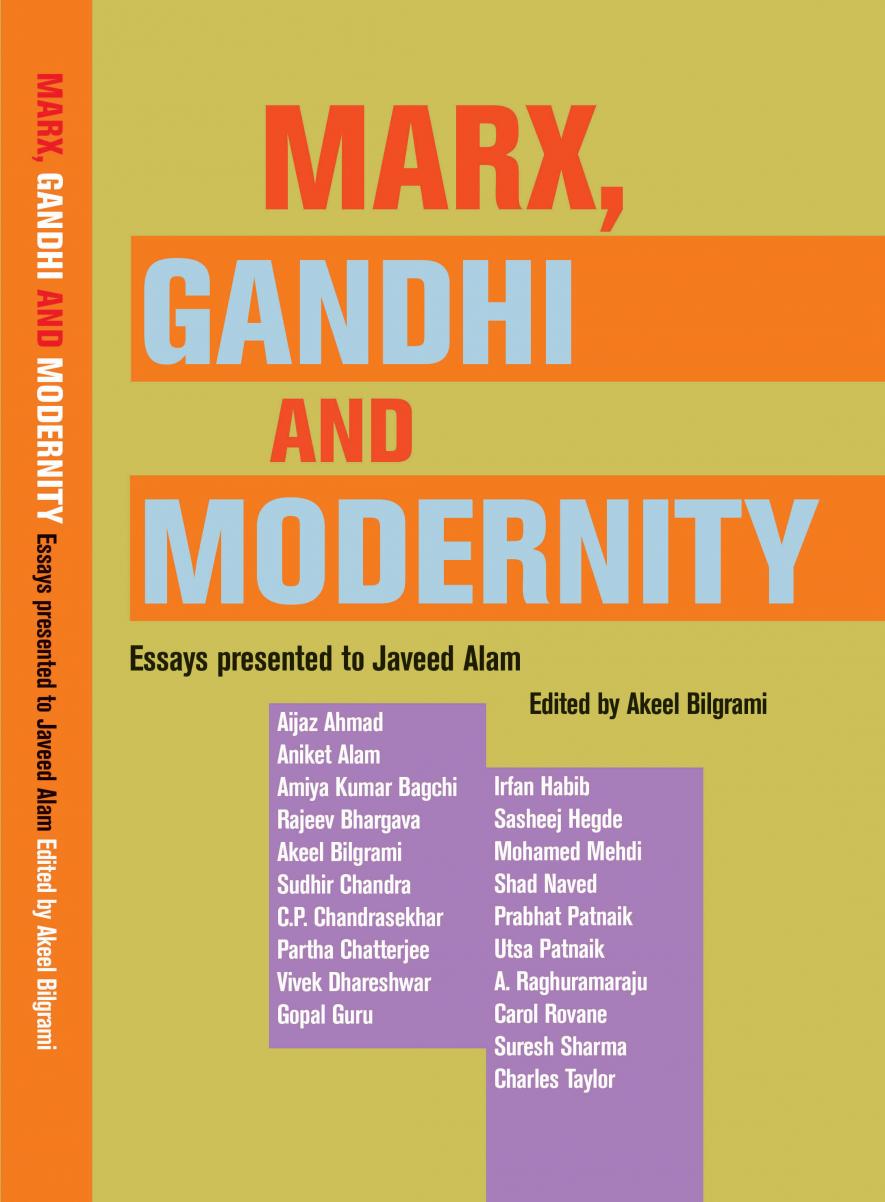
Essays presented to Javeed Alam
For people of my generation, Javeed Alam had become a legend in the 1970s. His marriage to Jayanti, following their Sapru House romance,had been seized by the Jan Sangh (as it then was called) to whip up a smirch campaign all over Delhi about how a Muslim youth had abducted a Hindu girl. Posters had suddenly appeared everywhere asking ‘Where is Jayanti?’, as if she had been abducted. The Left political parties in the city and teachers of the Delhi University, led by Kumaresh Chakravarty, stood rock solid behind Javeed. The situation became so explosive that a meeting had to be arranged between the young couple and Prime Minister Indira Gandhi herself, at which Jayanti told her in person that she had married Javeed of her own free will. Normalcy returned only after Salwan College, where Javeed had been teaching, rescinded its order terminating his services because of the struggle carried out by the Delhi University Teachers’ Association. Javeed’sand Jayanti’s incredible fortitude during the crisis impressed and moved us all.
I was resident abroad at the time, but news of this incident and of the remarkable young couple at the centre of it had filtered through even to the cloisters of Oxbridge. When my wife Utsa and I returned to India in 1973 to take up teaching assignments at the newly created Centre for Economic Studies and Planning of the Jawaharlal Nehru University, and decided to visit Chail during a summer break shortly thereafter, it was but natural that I should plan a ‘pilgrimage’ to Shimla across the hills to visit this incredible person, by then an icon of the Left, who was teaching at the Himachal University at the time, and his equally extraordinary wife.
My ‘pilgrimage’ itself was, in retrospect, quite amazing. All I had been told by our common friend, Rajendra Prasad, in Delhi was that Javeed lived ‘somewhere in Kaithu’. I took a bus from Chail to Shimla in the morning and walked all over Kaithu for two and a half hours before coming to a house that looked promising (because, as the neighbours informed me, some ‘university teacher’ lived there), only to find that nobody was at home. After a further wait of an hour and a half, Javeed finally turned up with his family and I introduced myself. I have never got along so well with anybody within seconds of the first meeting. It was as if we had been close friends all our lives. Rajendra Prasad’s remark to me before we had started, ‘You will like Javeed’, was a gross understatement!
After that first meeting, our visits to Shimla became more frequent. Once Javeed had booked us into the Shimla Kali Bari on top of the Ridge, where, as one would expect, there was an acute shortage of water. It was often that the Patnaik family would troop down to his house for a bath. It was also by no means infrequent for the Alam family to drop in at the Kali Bari for a fish-curry lunch (his son Aniket, known to all Javeed’s friends by his Bengali pet name Mishtoo, being extremely fond of food as a child). And all this was quite apart from our convivial meetings in Kaithu every evening. On another occasion when we stayed at the University Guest House at Summerhill, I remember the long daily walks by the two families from Kaithu to Summerhill with my son Nishad perched on Javeed’s shoulder, and their
seeing us off into the quaint little Kalka-bound train at the end of our visit.
What drew me to Javeed was not just his passion for ideas and for intense discussions, or even the closeness of our views; it was above all his total guilelessness, his absolute straightforwardness and honesty. One instance of this guileless honesty readily comes to mind. Some of us were visiting China as part of a Social Scientist delegation under the leadership of Professor Irfan Habib, the renowned historian. As is customary on such occasions, each side had to present its views on a range of subjects. Irfan Saheb discussed with us one night what he, as the leader of the delegation, was going to say the next morning. When it was Javeed’s turn to express his opinion on the proposed speech, he said with his usual candour and artlessness: ‘Whatever you say, be coherent!’ After a moment of startled silence, all of us burst out laughing; Irfan Saheb’s laughter was the loudest and he loved Javeed all the more for
that remark.
With Javeed there were never any half-measures. Joining the Party (the Communist Party of India [Marxist]) for him was not just paying his levy in time and dabbling occasionally in teachers’ politics while being primarily engaged in the usual ‘small change’ of academic life. He threw himself body and soul into Party work in Himachal Pradesh, and was greatly responsible for building up the CPI(M) in that state, where it has a notable presence to this day. In the process he faced much unpleasantness and victimization from the authorities in that state, dominated as it is by Hindutva forces.
Kolkata, which was Jayanti’s home city and where he moved for a while from Shimla, and later Hyderabad, Javeed’s own home base where he spent his last teaching years at the Central Institute for English and Foreign Languages (CIEFL) and where he finally settled, brought some respite from this unpleasantness. But his enthusiasm for Party work never waned, not even when, as a sensitive, creative and extremely thoughtful Marxist, he developed misgivings about some aspects of the theory of organizational structure and the associated mode of functioning of the traditional Communist parties. At a seminar held in Columbia University, New York in 2010, where several persons from the Indian Left were participating, Javeed was the only one who was forthright in declaring his political adherence to a Communist Party. When I was working for a while at the Kerala State Planning Board, Javeed was for me a valuable source of support and ever willing to lend his services to the Left-led state government, until of course his assuming the Chairmanship of the Indian Council of Social Science Research (ICSSR) made it impossible.
It was typical of Javeed that when he was retiring from the CIEFL and was offered an extension, while a distinguished colleague with whom he had well-known intellectual and political differences was not, he promptly turned it down, stating that he would accept the extension offer only if the colleague was made a similar offer. The nobility underlying that gesture, which very few in the academic world are capable of making, is inherited, some would say, from his father Alam Khundmiri, who was so influenced by the purity of a pir that he even took over his name for himself. But perhaps
it also derives from Javeed’s total intellectual and emotional commitment to the cause of human emancipation.
Get the latest reports & analysis with people's perspective on Protests, movements & deep analytical videos, discussions of the current affairs in your Telegram app. Subscribe to NewsClick's Telegram channel & get Real-Time updates on stories, as they get published on our website.









